Key Features
- Price: 280 USD
- Release Date : 27th January 2021
- ATX Form Factor / 6 PCB Layers
- INTEL Z590 chipset
- LGA1200 CPU socket
- CPU Support
- Intel 10th Gen CORE CPU
- Intel 11th Gen CORE CPU
- 4 x 32GB 5,533 MHz DDR4, maximum 128 GB
- 3 x PCIe x16 | 1 x PCIe x4
- Back IO :
- Display Port 1.4
- HDMI 2.0
- 4 x USB 2.0 — RX/TX 480 Mbps
- 4 x USB 3.2 2nd gen. Type-A+C — RX/TX 10 Gbps
- 1 x USB 3.2 dual channel TYPE-C — RX/TX 20 Gbps
- 1 x surge protected 2.5Gbps LAN controller
- Realtek ALC S1220 Codec 7.1 channels audio,
- STORAGE
- 3 x M.2 SSD
- 6 x SATA 3 — RX/TX 6 Gbps
- MULTIPLE GPU
- Nvidia SLI (x2)
- AMD Crossfire
- x14 50 AMPS power stages
- 6 layered PCB ( PCIe 4.0 ready)
- 5,333 MHz RAM clock
- Great Premium integrated AUDIO
- 3 M.2 SSD (+1 from past generation)
- No hybrid fan connectors
- No CLEAR CMOS button
- No 3USB 3.2 on back IO
On the 27th of January, ASUS will be releasing its Intel Z590 powered family of motherboards. This year launch is especially important for Intel since it is releasing its first ever PCIe 4.0 enabled processor, and the PRIME is about the most versatile (and sold) motherboard ASUS has to offer.
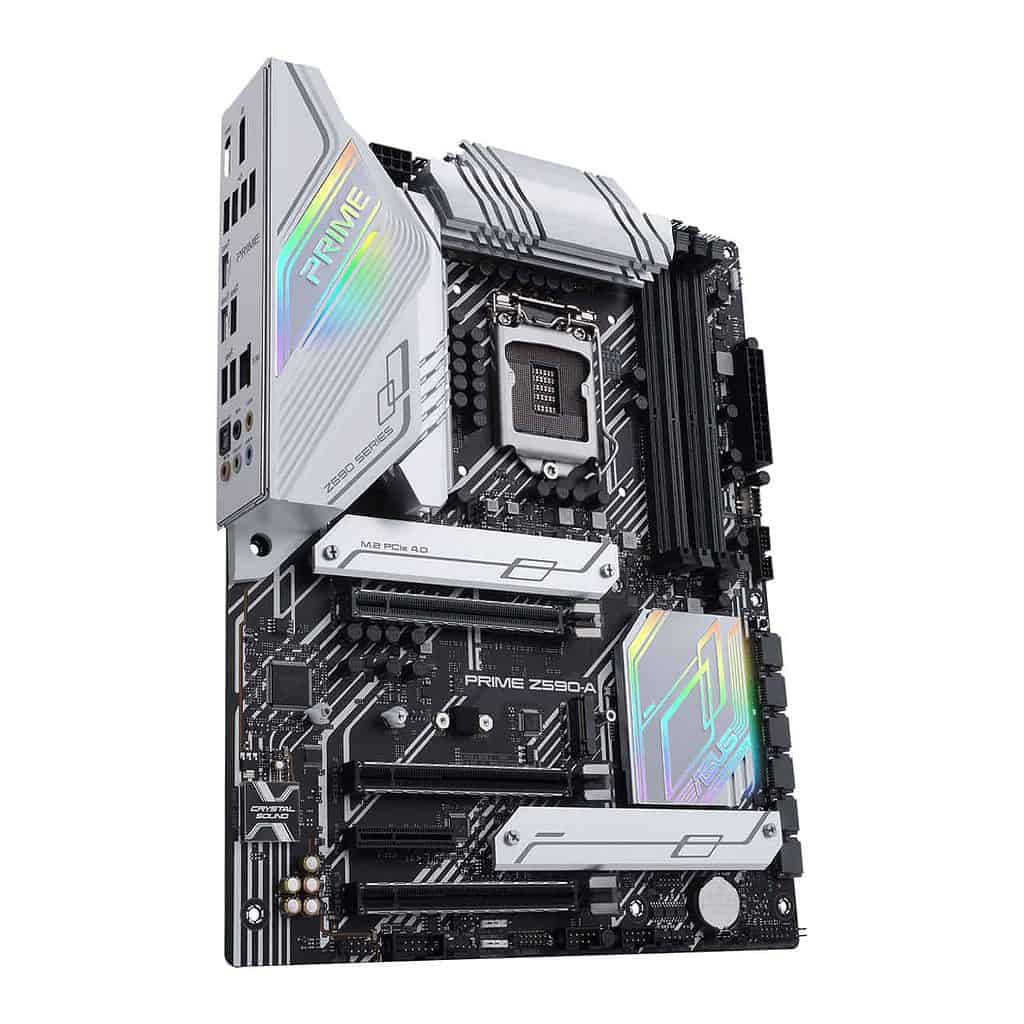
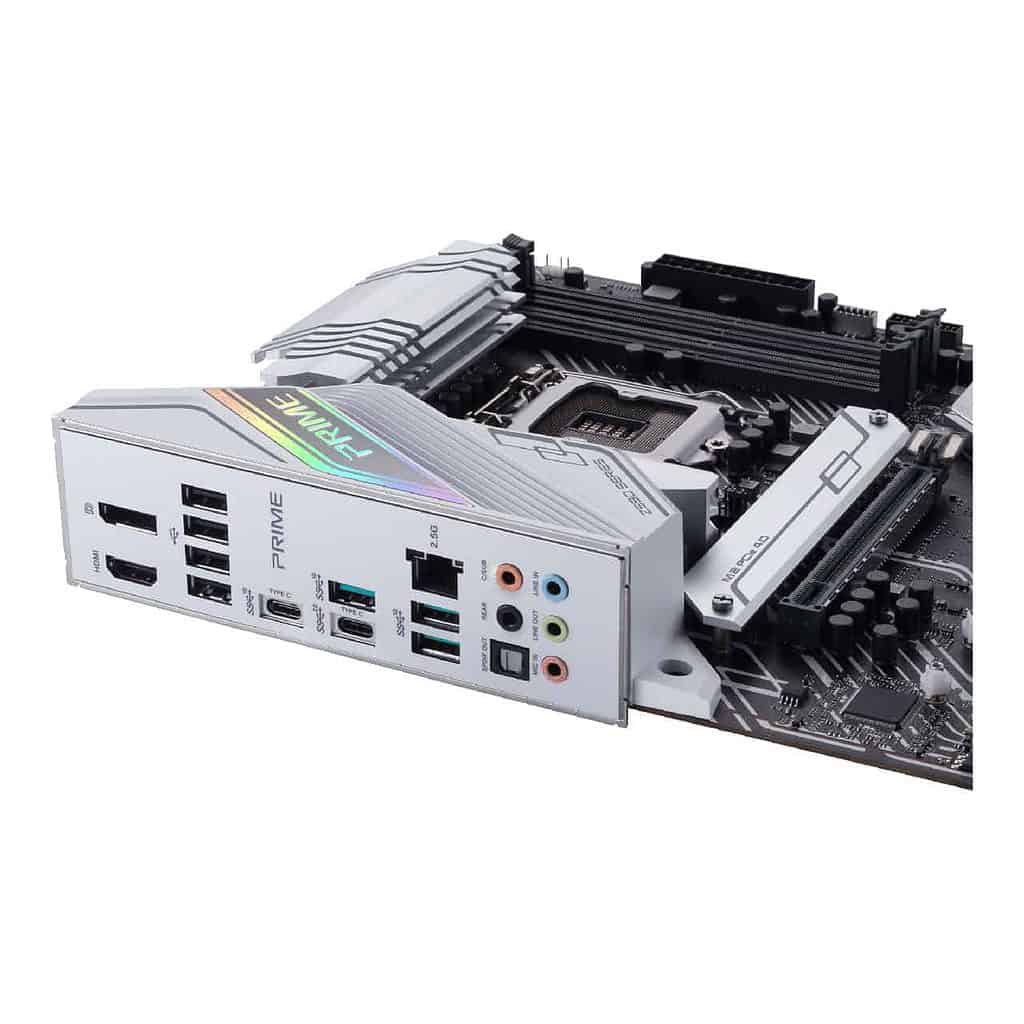
- 3 SATA cables
- Q-Connector
- M.2 SSD screws and screw raisers
- Manual
- DVD driver & Software
PCB
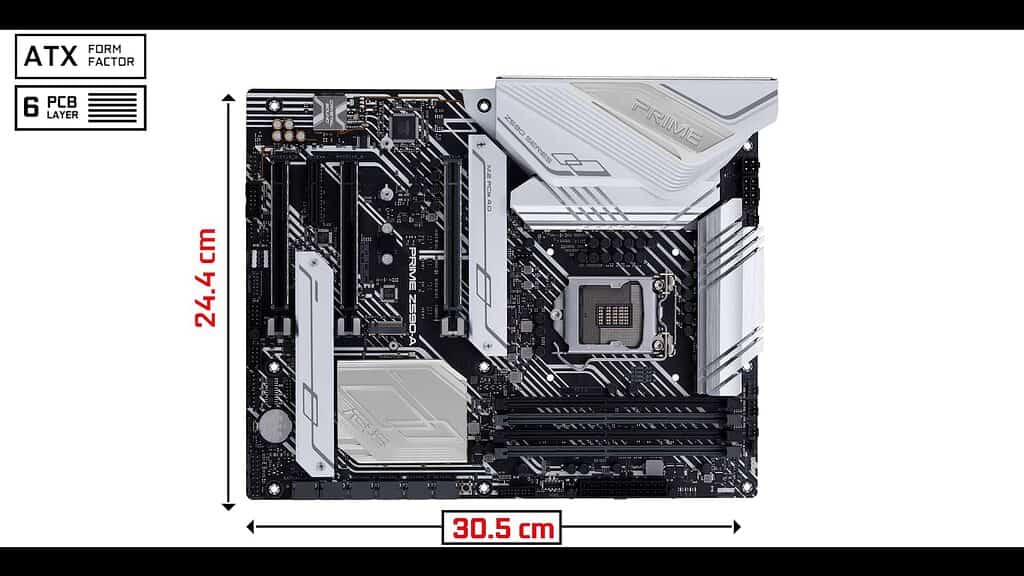
We are dealing with a 6 layered PCB ATX motherboard. Totally expected from a PCIe 4.0 enabled motherboard. Having more PCB layers (typically only 4) adds PCIe signal isolation which will allow a stable PCIe 4.0 support.
It also will benefit VRM heat dissipation and audio quality. Obviously, a very solid foundation for a performant and durable motherboard.
LGA 1200
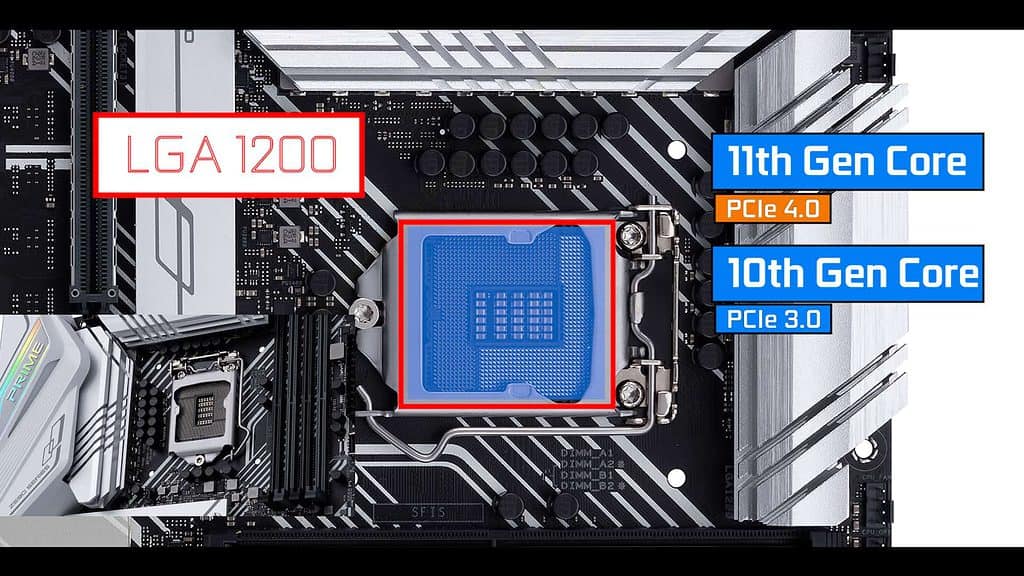
Our LGA1200 socket can support :
- 10 the Gen Intel CORE CPU
- 11 the Gen Intel CORE CPU
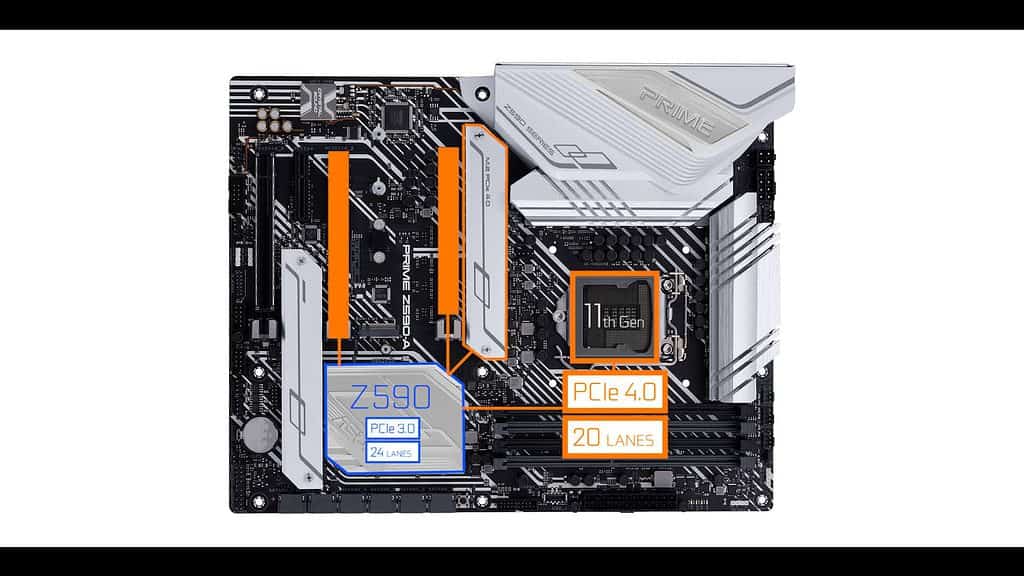
Worth noting only the incoming 11th gen Intel CORE CPU is PCIe 4.0 enabled which has its importance since it will feed our several components with double the bandwidth the PCIe 3.0 can.
The chipset fed components will remain PCIe 3.0 only compliant in any cases.
VRM
This is where ASUS really did well!
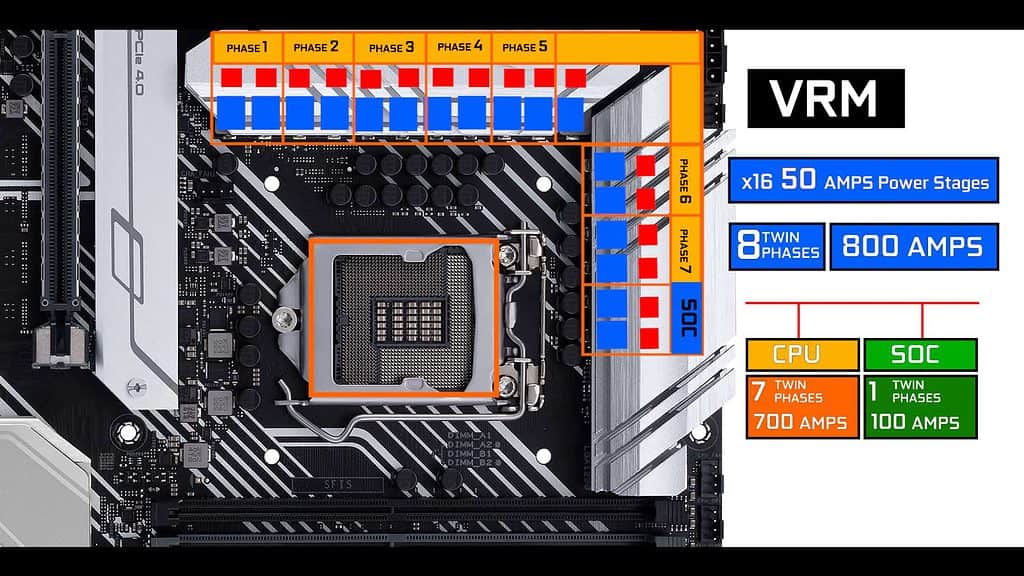
It has nothing to do with its predecessors, and truly is an unprecedent leap forward.
We have 16 50 AMPS Powers stages for a total of 800 AMPS organized in 8 twin phases, 7 of which are CPU centric.
We have 700 AMPS worth of juice to power our CPU. Obviously an upgrade motivated by the 11th Gen CORE CPU more demanding TDP!
But more importantly, it is more than enough to run and overclock any of the 10th or 11th Gen. CORE CPU
Heat wise
First, we have a 6 layered PCB, meaning a greater heat dissipation through the board,
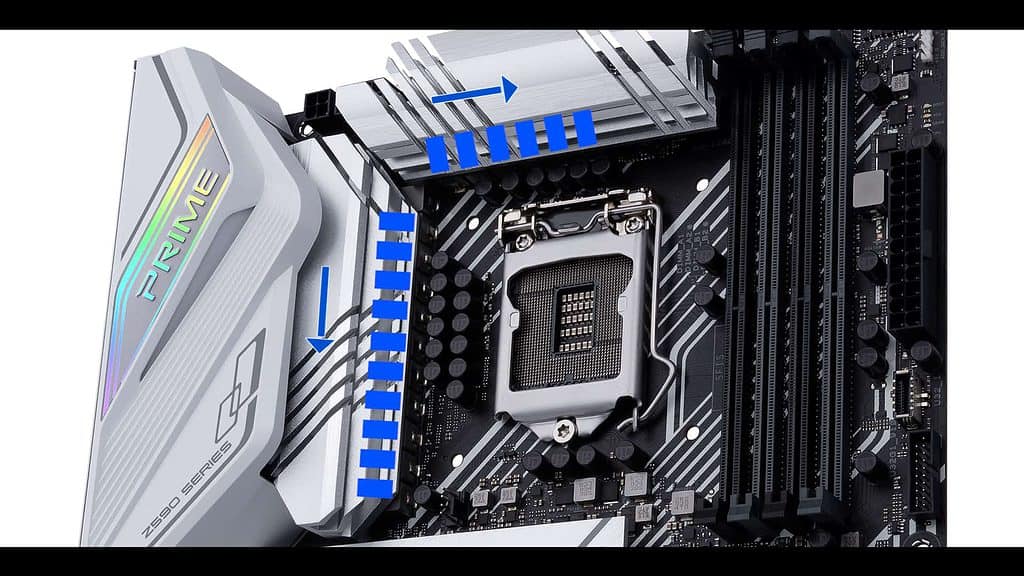
The overall power draw is shared amongst 14 power stages, in effect spreading the heat all around. This should give us one of the most powerful and coolest VRM seen on a PRIME series to date!
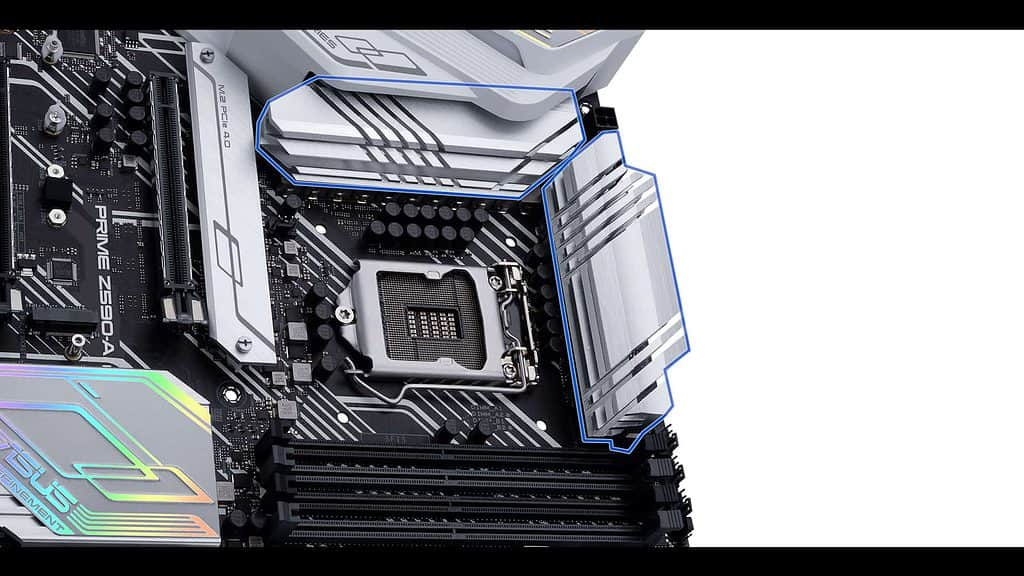
We have massive 2 large double-contact heat-sinks which should do a rather good job at radiating that massive VRM heat away.
In all and for all, I do expect this VRM temps to be well within thermo-throttling bounds with peaks at around 65C (PCB), on a copiously over-clocked i9-11900K.
RAM
The PRIME Z590-A can support up to 128 GB of DDR4 ram in a dual channel configuration.
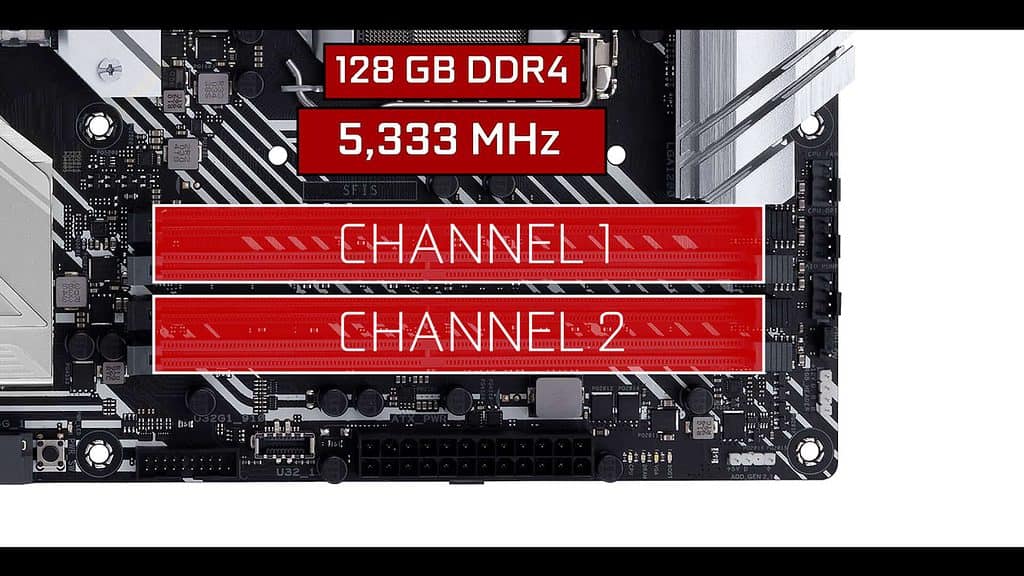
It is overclockable up to a novel 5,333 GHz ( in a single DIMM configuration ) which is noticeably more than its Z490 predecessor (533 MHz more).
This clock-jump is explained by the better memory-clock support of the new Z590 chipset (jumping from 2,933 MHz to 3,233 MHz of native support).
Populating more memory slots will result in slower shared clocks :
- 1DPC 1R max speed 5333 MHZ
- 1DPC 2R max speed 4600 MHZ
- 2DPC 1R max speed 4000 MHZ
- 2DPC 2R max speed 3800 MHZ
M.2 SSD
Our board can support up-to 3 M.2 SSD, which is obviously unprecedented for a PRIME board. But there is a catch!
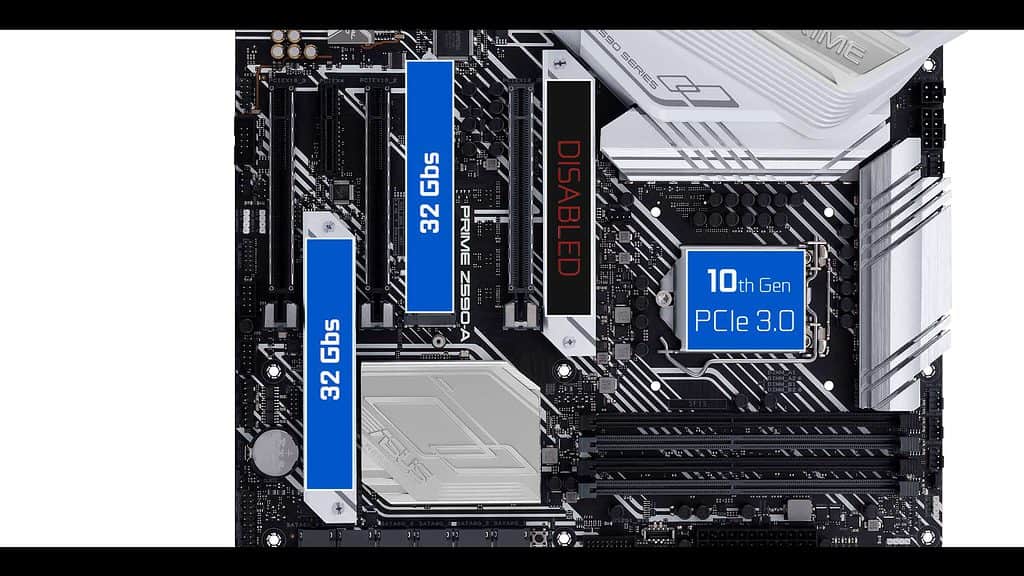
Couple this board with a 10th Gen Intel CORE CPU, and ‘only’ two M.2 SSD connectors will be usable, at PCIe 3.0 standard, meaning up to 32 Gbs each.
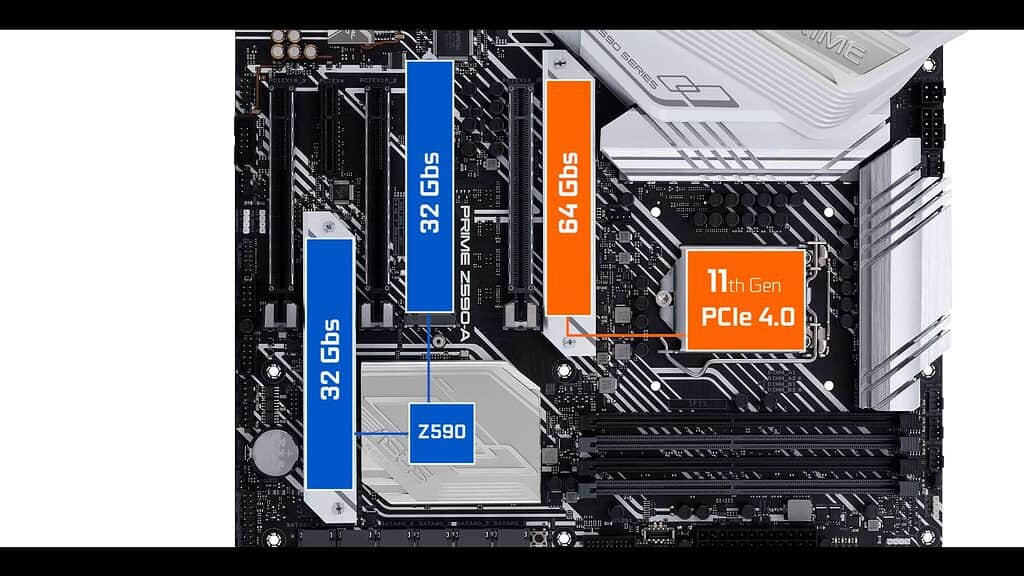
But if coupled with a 11th GEN Intel CORE CPU, your board can now support up-to 3 M.2 SSDs, 1 of which can transfer data at PCIe 4.0 bandwidth levels, meaning up to a whooping 64 Gbs.
Obviously this will produce quite a bit of heat.
Fortunately , we do have rather impressive thermo-padded heat-shields which do a wonderful job at keeping our stick cool in any usage condition.
Chipset
Despite many early reports, the Z590 Chipset does not house any PCIe 4.0 lanes. Instead it has the same 24 PCIe 3.0 lanes as seen on its Z490 predecessor.
In addition it can redirect the 11th Gen Intel CORE CPU 20 PCIe 4.0 lanes to some of the board components ( on this board, a PCIe 16 export slot and M.2 SSD connector).
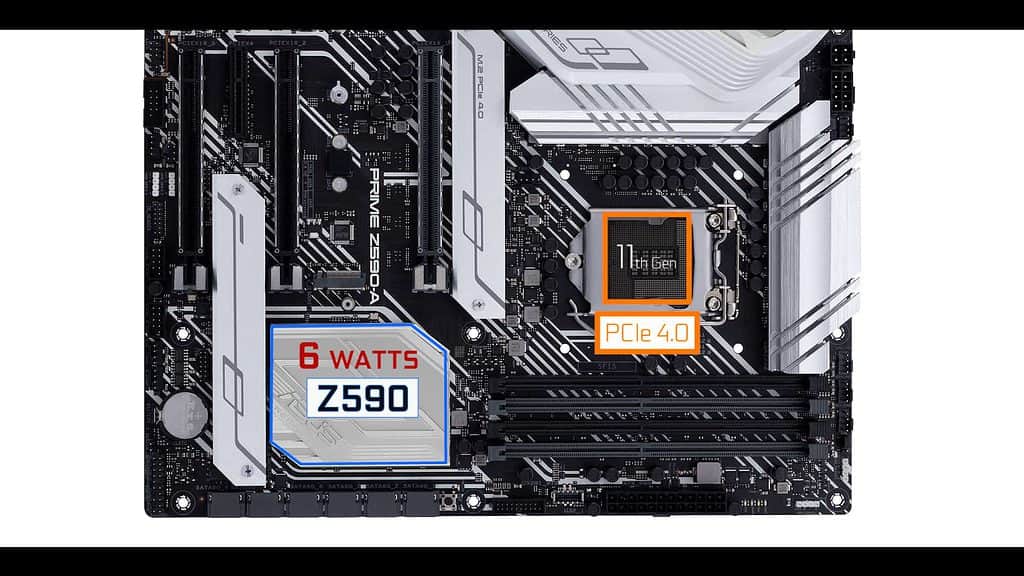
Is it a band thing? Not necessarily.
One one hand it keeps our chipset cold enough not to require an active cooling solution as seen on the boiling 11 watts X570 chipset, and on the other, the motherboard still benefits from the PCIe 4.0 standard brought in by its CPU.
As a result, we have a cooler, more affordable and arguably more durable motherboard.
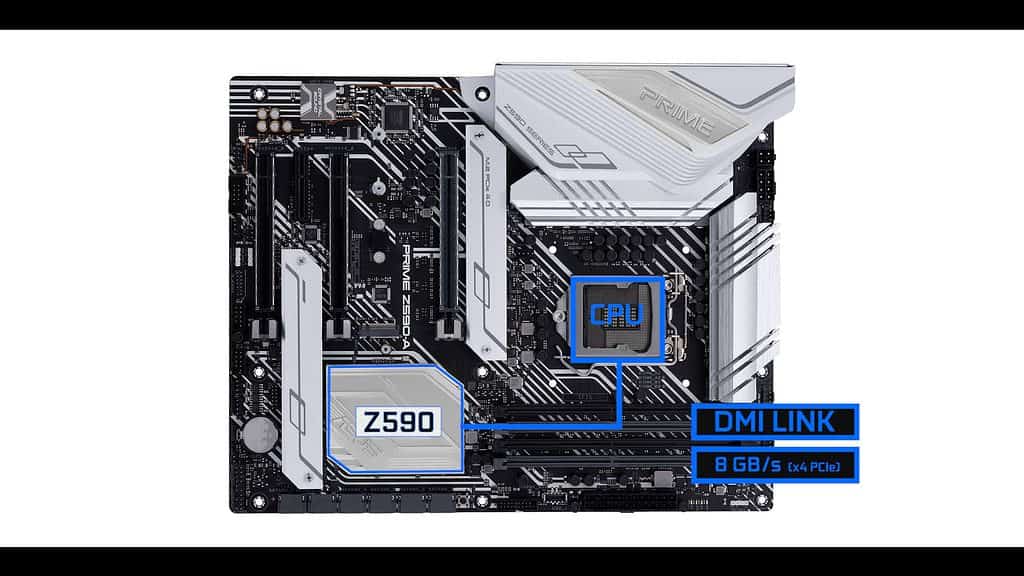
The upgraded we know of are, most noticeably,
- an upgrade DMI link which allows x8 PCI-e lane (8 GB/s) data swap between the chipset and the CPU. That is double what we have seen on the past few generations of Z powered motherboards.
Something which definitely benefit the overall bandwidth capacity of our board. - Thunderbolt 4.0
- More USB supports ( special note for the USB 3.2 dual channel 20 Gbs TYPE-C ).
SATA 3.0
For more classical storage solutions, we have our usual SATA 3.0 plugs. 6 in total, with a transfer rate of 6 Gbps each. They can be configured to run into a 0,1, or 10 RAID configuration.
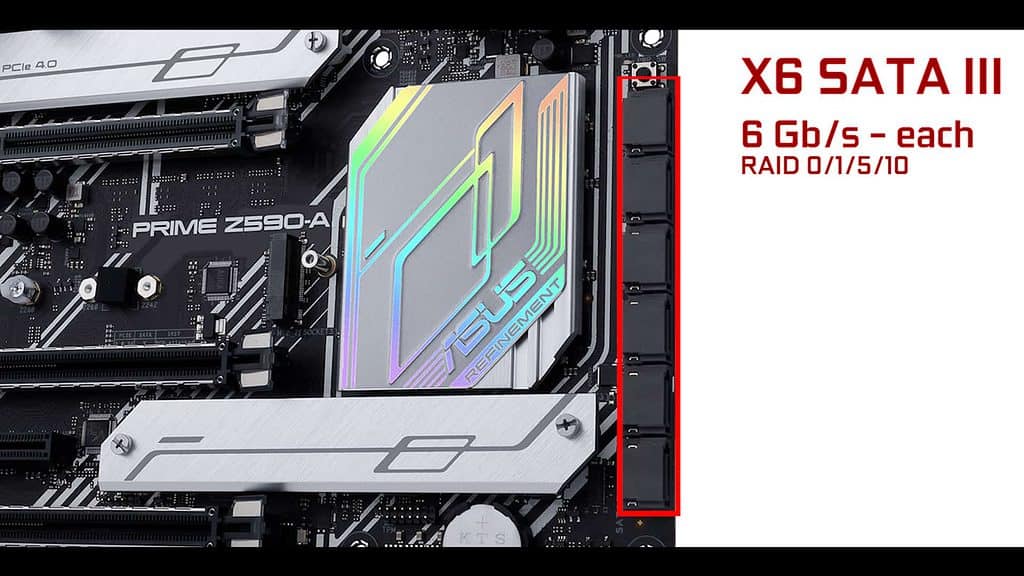
PCIe Slots
The PRIME Z590-A has 4 PCIe expansion slots.:
- 3 16 lanes with different speeds
- 1 4 Lanes PCIe
Only the closest one to your CPU can deliver up to 16 Lanes worth of bandwidth meaning, this is where you’d want your video card to be placed for optimal performances.
In a dual GPU configuration, lanes are split in a 8 by 8 PCIe lane configuration. Hence the metallic reinforcements.
Note that this board is both SLI (x2) and CROSSFIRE (x2) compatible.
Our last and 16 slots is capped at 4 PCIe lanes, not exactly GPU friendly. Nevertheless, ASUS has decided to still reinforce it with a metal housing, which is more for the aesthetics of things than anything else.
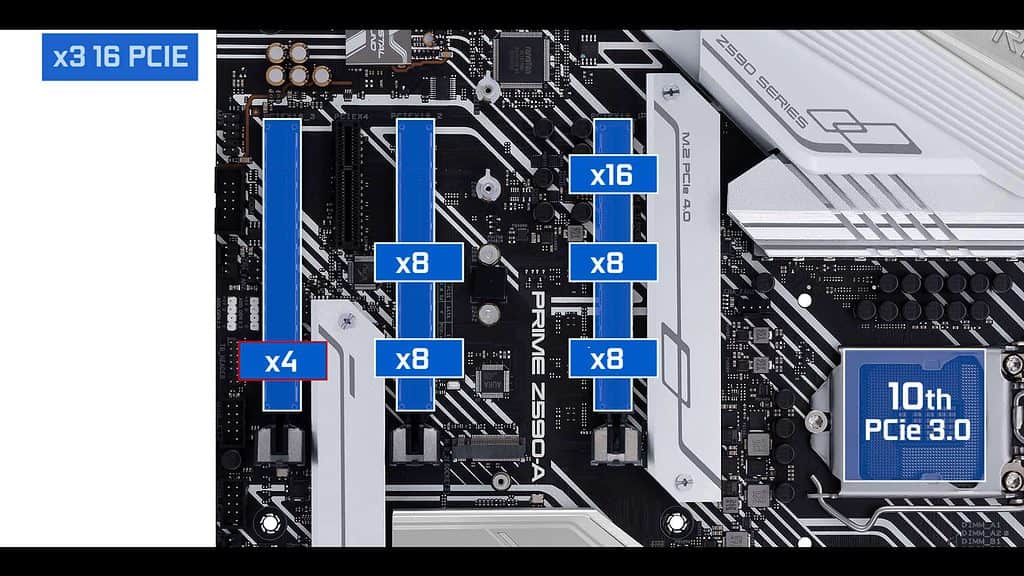
Coupled with a 10th Gen Intel CORE CPU, all of our PCIe slot will output bandwidth at a 1 GBs rate.
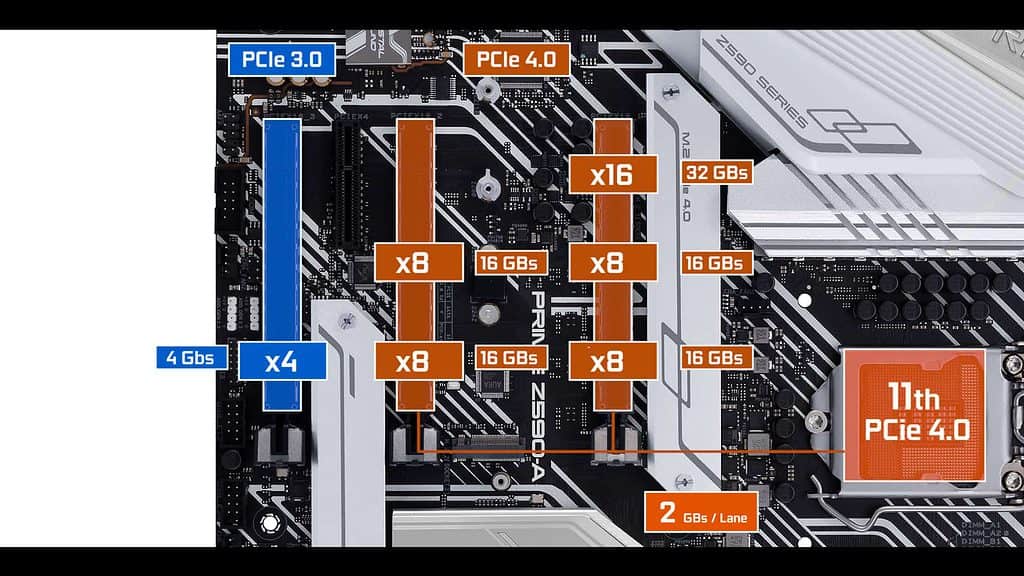
But if coupled with a 11th Gen. Intel CORE CPU, our 2 first PCIe 16 slots can output PCIe 4.0 bandwidth levels meaning 2 GB/s per lane.
Worth noting that, with the current bandwidth outputs of AMD or Nvidia graphics cards, there are no performance gains between PCIe 3 or PCIe 4 standards.
It is great for future proofing (and marketing), but that’s about it .
Back IO
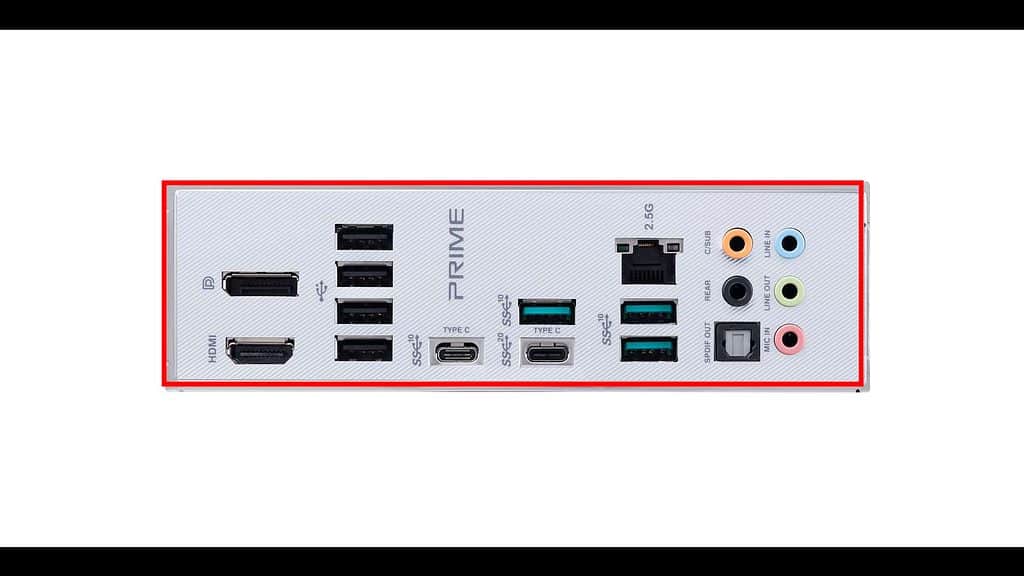
First let me note the presence of an IO integrated plate which is always a good point!
- 2x display outputs for our integrated graphics (HDMI 2.0 / DP 1.4), both of which can output 4096×2160 @60Hz.
- 4x 2nd Gen USB plugs (480 Mbps)
- 5x 3.2 2nd GEN USB plus , including 2 type C (10 Gb/s each)
- Note that one of the TYPE-C is dual channel meaning that it can output up to 20 Gb/s worth of data.
- a surge protected (ASUS LANGUARD) Intel I225-V 2.5Gbps LAN controller which is definitely a plus for streamers.
- a S1220 REALTEK audio codec, which is about the best integrated AUDIO Codec a board can have. In addition, it takes full advantage of the numerous PCB layers available to it, since both left and right audio channels have been traced on individual PCB layers, further improving its signal isolation and protecting it from static interferences.
Great for playing and recording alike.
Front Panel Connectors
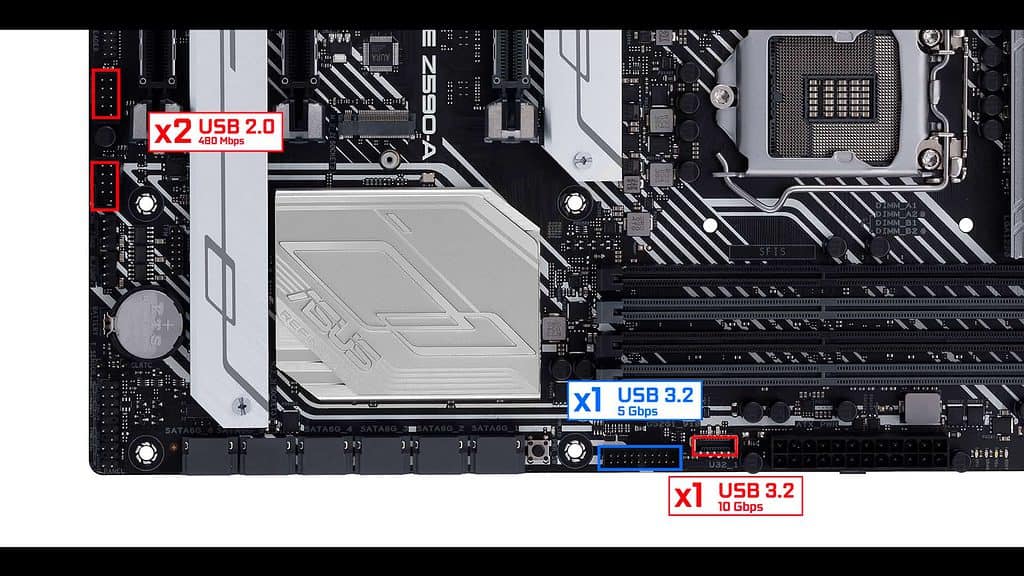
We have :
- 2x 2nd gen USB front panel connectors , good for our AIO pumps, or PSU monitoring,
- 1x 5Gbs USB 3.2 (1st Gen) front panel Connector
- 1x 10Gbs USB 3.2 (2nd Gen) TYPE-C front panel Connector
Overall a well furnished board-based peripherals in par with its pricing.
Note the presence of the new THUNDERBOLT 4.0 connector, allowing up to 40 Gbps transfer (same as in Thunderbolt 3.0) and energy output upto 60 Watts (new).
Cooling connectors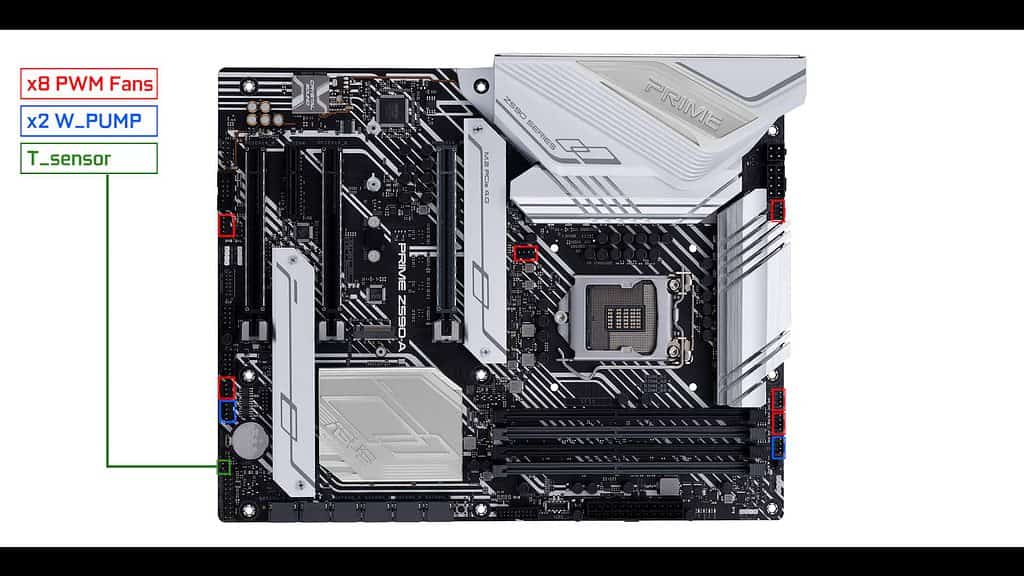
We have 8 nested PWM FAN connectors, 2 of which can support a water pump (AIO or dedicated)
Definitely what you want to see on an enthusiast driven board. The PRIME Z590-A can handle about any cooling solutions you will throw at it. Spanning from the classic air to the eccentric dual-loop custom water cooling apparatus.
Only regret here, is the fact that these connectors are not Hybrids which could support anything you’d throw at it, whether a fan, a water pump or a flow sensor.
I would have given this boards an unprecedented level of agility which enthusiast would have most certainly appreciate.
EZ Debugger
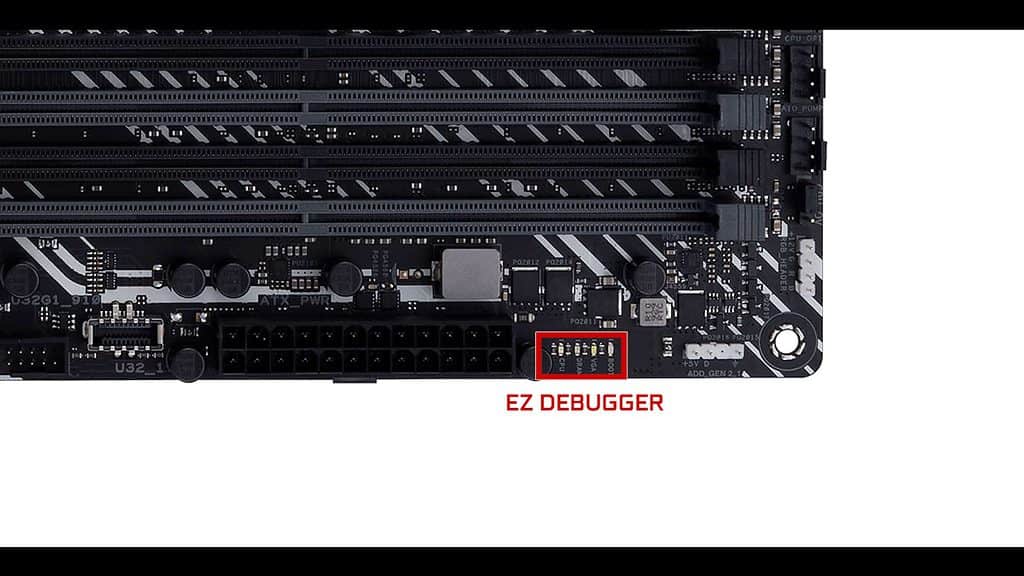
The EZ debugger is really the a crucial must-have on PCIe 4.0 enabled boards. More often than not, enthusiasts can’t resist the call to find their RAM or CPU overclocking limits, and fail boots becomes a daily incidence.
The EZ debugger will give us a first-aide troubleshooting guidance one what stage of the boot your system failed.
In addition do have a power soldered button, always a nice touch (pun intended).
AURA Sync Effect
RGB wise, our PRIME Z590-A has 2 nested RGB strips :
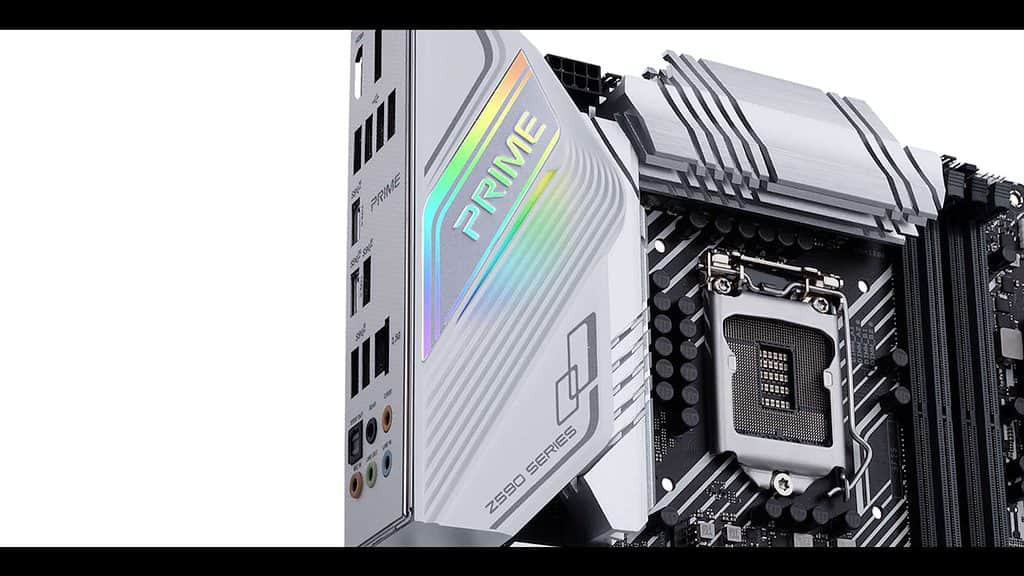
One under our IO roof,
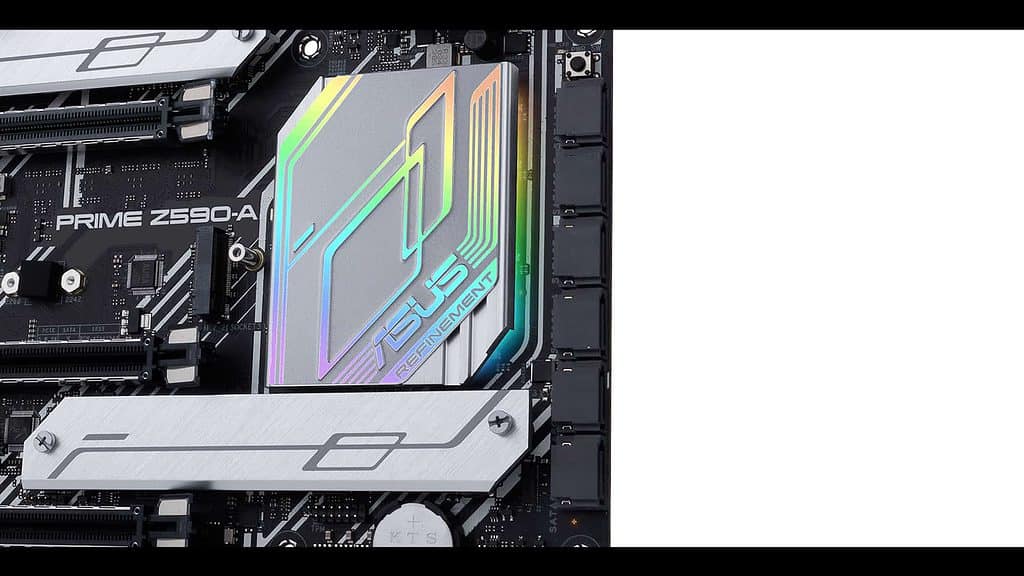
and a one on the corner of our chipset heatsink.
In addition we also have 4 RGB connectors :
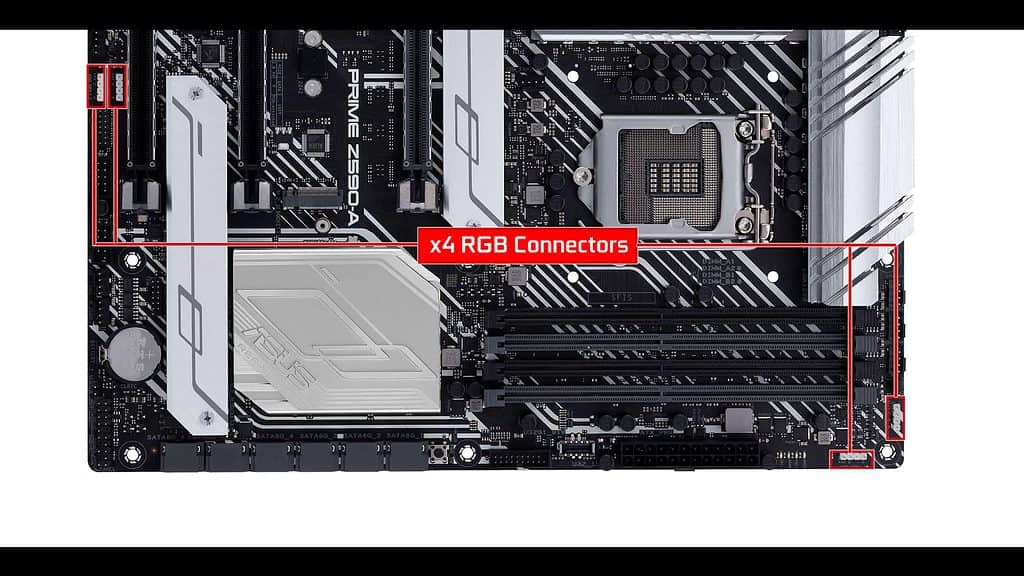
- 1 classic AURA RGB Connectors
- 3 Addressable AURA RGB Connectors
All of the above are obviously fully customizable (and sync-able) though ASUS proprietary AURA software or ARMOURY Crate.
CONCLUSION
According to retailers the PRIME Z590-A will go for 280 USD , 60 bucks more than its predecessor.
Is it worth it? Well, maybe.
We do have a stronger VRM, a 3rd M.2SSD and an upgrade BACK IO.
But what if you already have a Z490 powered motherboard.. short answer is NO. For example, the Prime Z490-A can already do absolutely everything this board does, can including delivering PCIe 4.0 performances on its CPU fed components, maybe not as much… but enough for your to rip most of its benefits.
But If you re going for a brand new build, the PRIME Z590-A, is actually not a bad value. It is about the widest range motherboard on the market today, and I have to admit it does that very well.
Either pro-gamers, build enthusiasts (remember that dual custom water-cooling support), or even professionals, (with a rather top of its range dual GPU Support), the PRIME Z590-A does a great job in making you feel it has been designed just for you!
It is also solidly future proofed with an expanded PCIe 4 support and its 20 Gbs TYPE-C plug.
In short the PRIME Z590-A does manage to bring a lot on the table at still an acceptable price, and if you are looking for a first time build or a sizable upgrade, there is nowhere else where your money wants to be!
QUICK OVERVIEW
CPU & northbridge support
Memory
Connectors

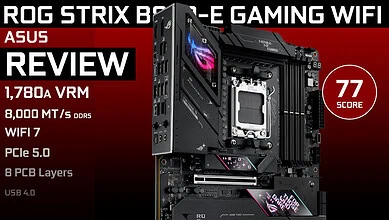
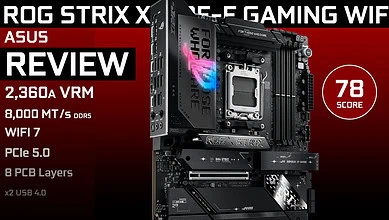
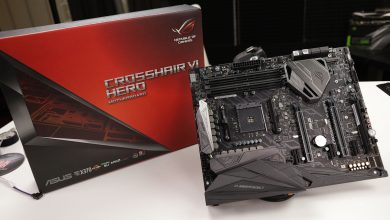
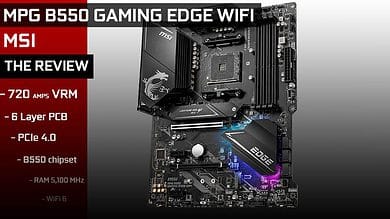
Laurent
according to the manual (retrieved March 8th) the bottom PCIe slot is wired to the CPU and although it is only a x4 , it is PCIe 4.0.
Moreoever, a close observation of your excellent youtube video at 9:08 shows that PCIeX16_2 has only four electrically wired PCIe 4.0 lanes (not eight)
In the sense this makes PCIeX16_2 and PCIeX16_3 having identical features ( both wired to CPU, both capable of PCIe 4.0 in case of 11th gen CPU). Therefore, identical metal protection seems logical.
Page i-8 of the manual explains the PCIe layour is either 16x,0,0 or 8x,4x,4x.
Feedback would be appreciated before buying this board.
Thank you for your notes 🙂
When doing previews, not all the specs are available so some assumptions need to be corrected 🙂
Thanks again!
L.
Buenas tardes. Me interesa saber si le pongo un micro Intel i7 10700k, no hace falta que le ponga una placa de vídeo para poder usarla no?
y por otro lado, Tengo un disco solido ssd M.2 donde me recomiendan ponerlo, en el el puerto de arriba, del medio o el de abajo?